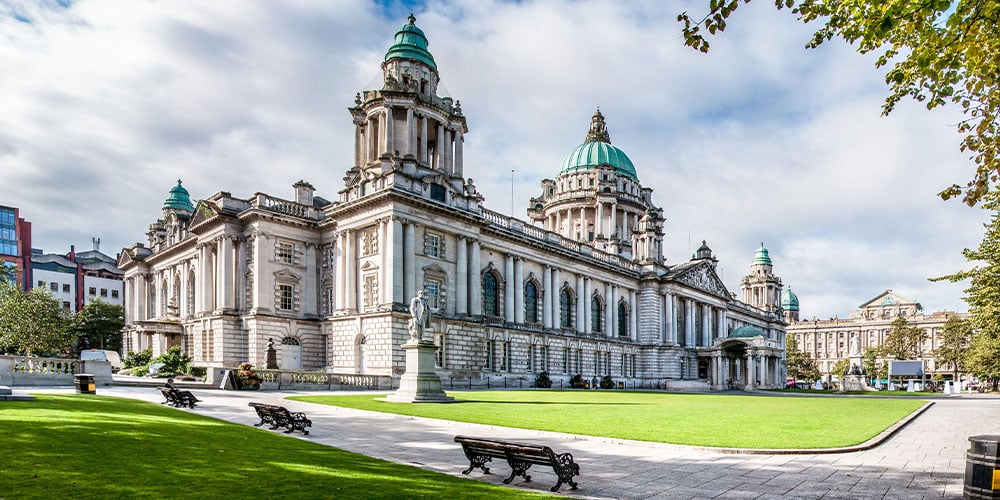Update your subscriptions for Grant Thornton publications and events.
-
Business Risk Services
Our Business Risk Services team deliver practical and pragmatic solutions that support clients in growing and protecting the inherent value of their businesses.
-
Corporate Finance and Deal Advisory
We offer a dedicated team of experienced individuals with a focus on successfully executing transactions for corporates and financial institutions. We offer an integrated approach, with our corporate finance specialists working seamlessly with tax and other specialists to ensure that every angle is covered.
-
Economic Advisory
Our all-island Economics Advisory team combines expertise in economics and business with a wealth of experience across the public and private sectors.
-
Forensic Accounting
We have a different way of doing business by delivering real insight through a combination of technical rigour, commercial experience and intuitive judgment. We take pride in delivering responsive and tailored solutions to all our clients, capitalising on the wealth of experience housed within our Belfast and wider Forensics team
-
People and Change Consulting
The Grant Thornton People & Change Consulting practice works with clients on these issues as well as on all aspects of how they attract, retain, engage develop, deploy and lead their people.
-
Restructuring
We work with a wide variety of clients and stakeholders such as high street banks, private equity funds, directors, government agencies and creditors to implement solutions which provide the best possible outcomes.
-
Technology Consulting
Motivating and assisting our clients to pursue, maintain and secure the benefits of digital solutions is at the core of our Digital Transformation teams' agenda and goals. We work with business leaders to deliver efficient digital strategies and operating models that provide new or enhanced capabilities.
-
Corporate and International Tax
Northern Ireland businesses face further challenges as they operate in the only part of the UK that has a land border with a country offering a lower tax rate.
-
Employer Solutions
Our team specialises in remuneration and incentive planning and works closely with employers, shareholders and employees to ensure that business strategies are aligned and goals achieved in the most tax efficient, cost-effective manner.
-
Entrepreneur and Private Client Taxes
Our team of experienced advisors are on hand to guide you through any decision or transaction ranging from the establishment of new business ventures, to realising value on exit, to succession planning and providing for loved ones.
-
Global Mobility Services
Grant Thornton Ireland offer a different approach to managing global mobility. We have brought together specialists from our tax, global payroll, people and change and financial accounting teams across Ireland and Northern Ireland, while drawing on the knowledge and insights of our global network of over 143 offices of mobility professionals to provide you with a holistic approach to managing global mobility.
-
Outsourced Payroll
Our outsourced service provides valued service to over 150 separate PAYE schemes. These ranging from 1 to 1000 employees, working for micro, SME and global employers. The service is supported by the integrated network of tax and global mobility teams and the wider Grant Thornton network delivering a seamless service. Experienced staff deliver a personal service built around your business needs.
-
Tax Disputes and Investigations
Our Tax Disputes and Investigation team is made up of tax experts and former HMRC investigators who have years of experience in dealing with a variety of tax investigations. Our expertise and insight can guide you through all interactions, keeping your cost at a minimum while allowing you to continue with the day to day running of your business.
-
VAT and Indirect Taxes
At Grant Thornton (NI) LLP, our team helps Northern Ireland businesses manage their UK and global indirect tax risks which, as transactional taxes, can quickly become big liabilities.

Three Prime Ministers and five Chancellors on from the last general election in 2019 has created an air of chaos and disorder and I’m wondering if we are back to a 1997-esque ‘things can only get better’ moment? Assuming a Labour government, what are Labour’s key economic policies, and what can Northern Ireland expect?
The biggest clue to Labour’s economic policy comes from a speech from the Shadow Chancellor, Rachel Reeves, in March. In this lecture, the shadow chancellor played up stability as a bedrock of growth, perhaps mindful of the chaos of a recent past that gave us ‘Trussonomics’. The Shadow Chancellor is trying to push a new ‘onomics’ on to the stage – ‘securonomics’.
‘Securonomics’ reflects on how a lot of our recent inflation was imported because of our reliance on energy from elsewhere and seeks to build more self-sufficiency in energy and more secure supply lines for key items. Securonomics is modelled somewhat on President Biden’s Inflation Reduction Act – i.e. a more active state, building economic security, strength and resilience and focussing on an industrial policy that seeks to guarantee an ability to produce what the domestic economy needs, relying less on external forces.
Labour’s plan for the economy revolves around five points. These are:
- Economic Stability: Labour would Introduce a new fiscal lock to avoid a repeat of the Kwasi Kwarteng budget. This will bind a labour government to having a current budget in balance and having debt falling as a share of the economy by the fifth year of any forecast period. Oh, and there will be a single autumn budget every year and the publication of a roadmap for business taxation, covering the duration of the parliament
- Labour intend to cap corporation tax at its present rate of 25 percent. The aim here is to try and ensure that businesses can plan investment projects today, with the confidence of knowing how their returns will be taxed for the rest of this decade. As we know, there are still those pushing for a corporation tax reduction for NI. We can do that if we want but the cost is proving prohibitive. Whilst it is unclear if Labour will reopen a conversation on funding our cut, I would guess they would not.
- Getting Britain Building again: While this relates more to GB planning reform, it is motivated by a belief that housing and modern infrastructure are key to growth, a belief that might bode well for NI when making the case for funds given our creaking infrastructure.
- Backing business: a new industrial strategy will aim to maximise strengths in life sciences, digital, creative, financial industries, clean power and automotive. A national wealth fund is intended too as a partnership between public and private funds.
- A skills revolution: more high quality apprenticeships and training opportunities tailored to local needs. Again, this will be welcome rhetoric to our business community who are increasingly struggling to find suitable people for the jobs they have.
- Making work pay: a new deal for working people is in the offing under a labour government. They intend to deliver a ‘genuine living wage’ and ban zero hours contracts.
Within these points, and from speeches by the Shadow Chancellor, there is a strong read across to our own Economy Minister’s economic objectives to create good jobs, promote regional balance, raise productivity; and reduce carbon emissions.
Of course, with swathes of our own economic policy devolved to us, the key point of interest will be whether Labour turn the spending taps on, from which we will get additional funding through the Barnett formula that can then be spent as our Executive decides. The mood music regarding more spending does not appear favourable. In opposition, Labour have been at pains to show they are economically credible and so have essentially tied themselves to similar fiscal rules to the Conservatives. This means that any significant increases in spending will likely have to be afforded by a growth spurt that creates what we call ‘fiscal headroom’. That is not beyond the realms of probability, but the economy has been stubbornly lacking in growth over the past decade or so.
I don’t detect the same enthusiasm that accompanied the last time Labour came to power in those heady days of Brit Pop and ‘Cool Britania’ but after such a prolonged period of uncertainty and instability, if whoever comes to power after the election delivers stability then things can only get better. But regardless of who takes office, they will need a massive slice of economic luck to avoid making stark choices on spending and tax.

